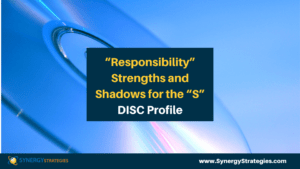In our American society, we are conditioned “failure” is bad. From the time we are in school, the F is the dreaded sign of a “bad student” lacking in ability, skill or talent to do what they need to do to get a passing grade. Maybe the F was needed to measure and indicate the need for more skill development prior to advancing, however, in general, it holds more of a meaning of shame, badness, and inadequacy. In general, it is the lack of success and not complying with the expected or required action. It is a failure. While I am not advocating for “everyone gets an A”, I want to reflect on the impact of the F or feeling of failure.
This conditioning can cause many to fear and avoid failure by seeking approval, winning, excelling and achieving instead. On one hand, this is great life behavior to aspire to do and be your best. However, in the white space, the fear of failure or making a mistake can be very unhealthy leading to blaming, deflecting responsibility, lack of risk-taking, cheating, lying, etc.
For others, it can result in a feeling of surrender to just plain being a failure and succumbing to a life of failure “since I already am”. That is the other side of the road/ditch. This mindset does not aspire or strive to achieve because they subconsciously or consciously need to keep the bar low to avoid more painful feelings of failure. Since they already feel like one, why make it worse by adding new failure, you might as well enjoy the pit. This can lead to brainless jobs with little work ethic or motivation, lack of work or improving anything, little clarity or desire to improve or develop, very low self-worth which can lead to addictions, depression and other negative consequences.
The impact of both ditches – the high achiever who cannot fail or the underachiever who sees themselves as a failure already – is both can create some pretty negative energy and relationships. Those who are achieving can turn into highly critical and crabby people as they feel victimized by all the other underperformers that might affect their ability to succeed or very unapproachable and defensive people as they work hard to dodge things that would make them look bad or like a failure. It is common to defend and justify how you are not like this, as it paints a bit of a negative picture, however, if you fall in this category, it is important to constantly be practicing humbleness to assess: what is the benefit of failure? do I fear failure? do I avoid failure? because if you do, you have some of these hidden or not so hidden responses because your ego has to protect you from failure. IF in fact, you believe failure is bad.
For those who have determined they are already failing and have given up on growth and achievement… your position would more likely be apathy toward failure and total acceptance of it, or at least on the surface. A lack of setting goals, uninterested in feedback, goals or ideas on how to improve yourself because it doesn’t matter anyway. This group of people might feel this whole conversation about failure is stupid anyway because it doesn’t matter and if you keep life simple enough all is good. The challenge with this is, this group can shut down innovation and improvement, not because it is bad, but because it is raising the bar too high. It doesn’t appreciate the value others bring (if their work is at all creating more work for you) and it works to keep things as low as possible so that no one feels or looks bad. Generally, the outlook can be very doomsday or Eeyore-like. Again, this is really rooted in low confidence internally but extends to the world around as the ego tries to reconcile a feeling of helpless and worthlessness.
The important message here is to understand your perspective and view on failure. If you see the benefit and growth that comes from failing forward you are in a good place. Don’t fool yourself, however, accepting failure is very challenging even for the most confident and humble people. It is usually something that needs occasional check-in as we can have periods of great success or great failure that draw us to one side of the road/ditch. Keeping a healthy tab on your ego and comfort level with failure is a good way to keep balanced … and more importantly LEARN FROM FAILURE rather than avoid or resist it.
My favorite example is Thomas Edison and his story.
“As famous as he was for his successful inventions, such as the light bulb and the gramophone, Thomas Edison was perhaps equally as famous for embracing failure. In the years he spent inventing a commercially viable light bulb, Edison failed to achieve what he had set out to do thousands of times over. “I have not failed 10,000 times,” he said. “I have not failed once. I have succeeded in proving that those 10,000 ways will not work. When I have eliminated the ways that will not work, I will find the way that will work.” (summary is written here: http://fortune.com/2016/03/25/successful-people-failure/)
A great book to dig in deeper on this topic is Failing Forward by John Maxwell.
Learn more… 10 fact about failure – https://www.psychologytoday.com/blog/the-squeaky-wheel/201501/10-surprising-facts-about-failure






